Diego Tonus
The Artist’s proofs20 June ︎︎︎ 03 August 2019
di Jessica Bianchera
Artist’s Proofspresenta due serie di lavori tra le più importanti nella ricerca di Tonus: Fragments of a Conversation with a Counterfeiter e Processing Authorities, scegliendo però di ragionare non sulle opere finite, bensì sulle prove d’artista. La mostra invita a interrogarsi sul processo, sul retroscena, sul making of di un’opera, riflettendo così non solo sul concetto di copia come strumento per analizzare un originale (tema centrale di entrambe le serie in mostra), ma anche sul significato del rapporto tra prodotto finale e prova d’artista. Nel lavoro di Tonus il processo creativo e di ricerca che conduce all’opera dura spesso anni e riveste un’importanza fondamentale: un lento processo maieutico in cui non solo si concentrano lo studio empirico e l’indagine sul campo, ma in cui, soprattutto, si realizza il passaggio dalla
riflessione intellettuale all’opera, all’esperienza tangibile, al rapporto con l’altro. Per questo motivo gli oggetti prodotti in questa fase rivestono un’importanza cruciale: non si tratta di abbozzi da scartare in favore del risultato finale, ma sono degli ibridi, delle opere vere e proprie che portano con sé i segni del processo di creazione stesso. Sono il primo frutto tangibile della ricerca, i tasselli di un’azione in fieri, capaci di svelare il primo approccio autentico dell’artista con la materia e con la creazione di pensiero. Questi ibridi contengono una tensione che si ritrova nella loro natura potenziale, nel tendere verso l’opera e nell’interrogare il rapporto fra valore artistico/culturale e valore economico dell’opera stessa. In una società fatta di merci e di prodotti finiti, è convenzione non scritta che sull’oggetto finale debba concentrarsi l’intero valore dell’opera, ma di quel lungo processo di osservazione e di quel continuo procedere per tentativi, errori e perfezionamenti, cosa rimane? Che valore hanno l’idea e il suo progressivo farsi e disfarsi? La prova d’artista è soggetto, oggetto o copia ante litteram dell’opera d’arte?
Artist’s Proofs presents two series of works among the most important within Diego Tanus research, Fragments of a Conversation with a Counterfeiter and Processing Authorities , choosing to not debate about completed artwork, but on the artist’s proofs. The exhibition invites us to question the process, the backstage and the making of an artwork. In this way not only we reflect on the concept of copy, as an instrument to analyse an original (main topic for both the exhibition series), but also on the meaning of relation between a finished product and an Artist’s Proof. In Tonus’ work the creative and research process, leading to the artwork, often takes years and fulfil a fundamental role. It’s a slow maieutic dialogue, where not only both empiric study and field research are concentrated, but, above all, where the passage from the intellectual thinking to the tangible experience and to the relation with the other takes place. For this reason, the objects realised in this phase assume a crucial importance. They are not disposable sketches of a final result, but hybrids, real artworks carrying with them the signs of the creative process. They are the first evident research result, dowels of an action “in fieri”, capable of revealing the first authentic approach of the artist to matter and creative thinking.
Such hybrids contain a stress within their in potence nature of tension toward the artwork. They query the relation between the artistic/ cultural value of the artwork and its economic value. In a society made of goods and end products, the fact that the entire value of the artwork is focused into the final object it’s a non written convention. But what does remain of that continuous improvement process by trial and error? What’s the role of the idea and its progressive folding and unfolding? The artist’s proof is subject, object or an “ante litteram” copy of the artwork?
Such hybrids contain a stress within their in potence nature of tension toward the artwork. They query the relation between the artistic/ cultural value of the artwork and its economic value. In a society made of goods and end products, the fact that the entire value of the artwork is focused into the final object it’s a non written convention. But what does remain of that continuous improvement process by trial and error? What’s the role of the idea and its progressive folding and unfolding? The artist’s proof is subject, object or an “ante litteram” copy of the artwork?
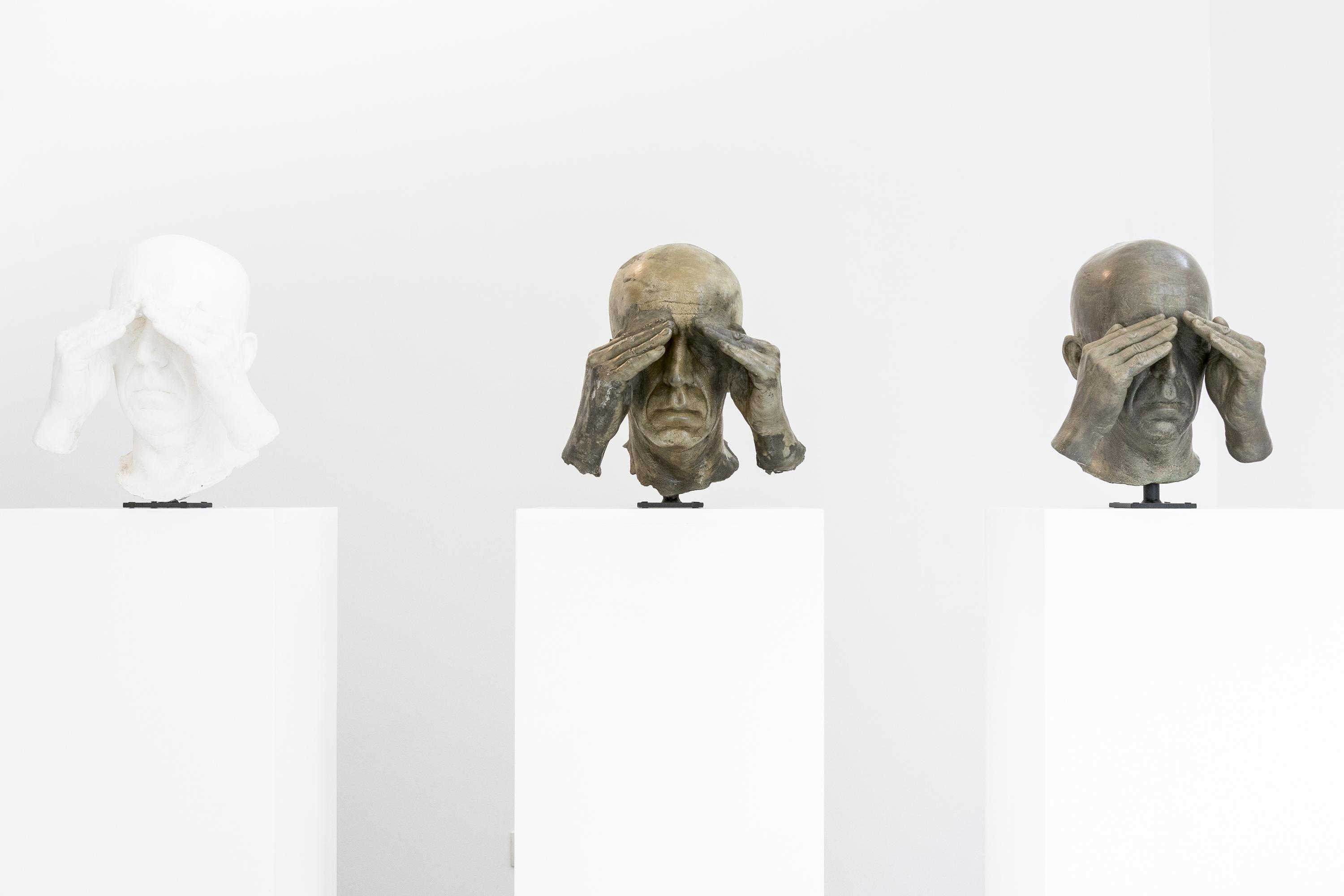
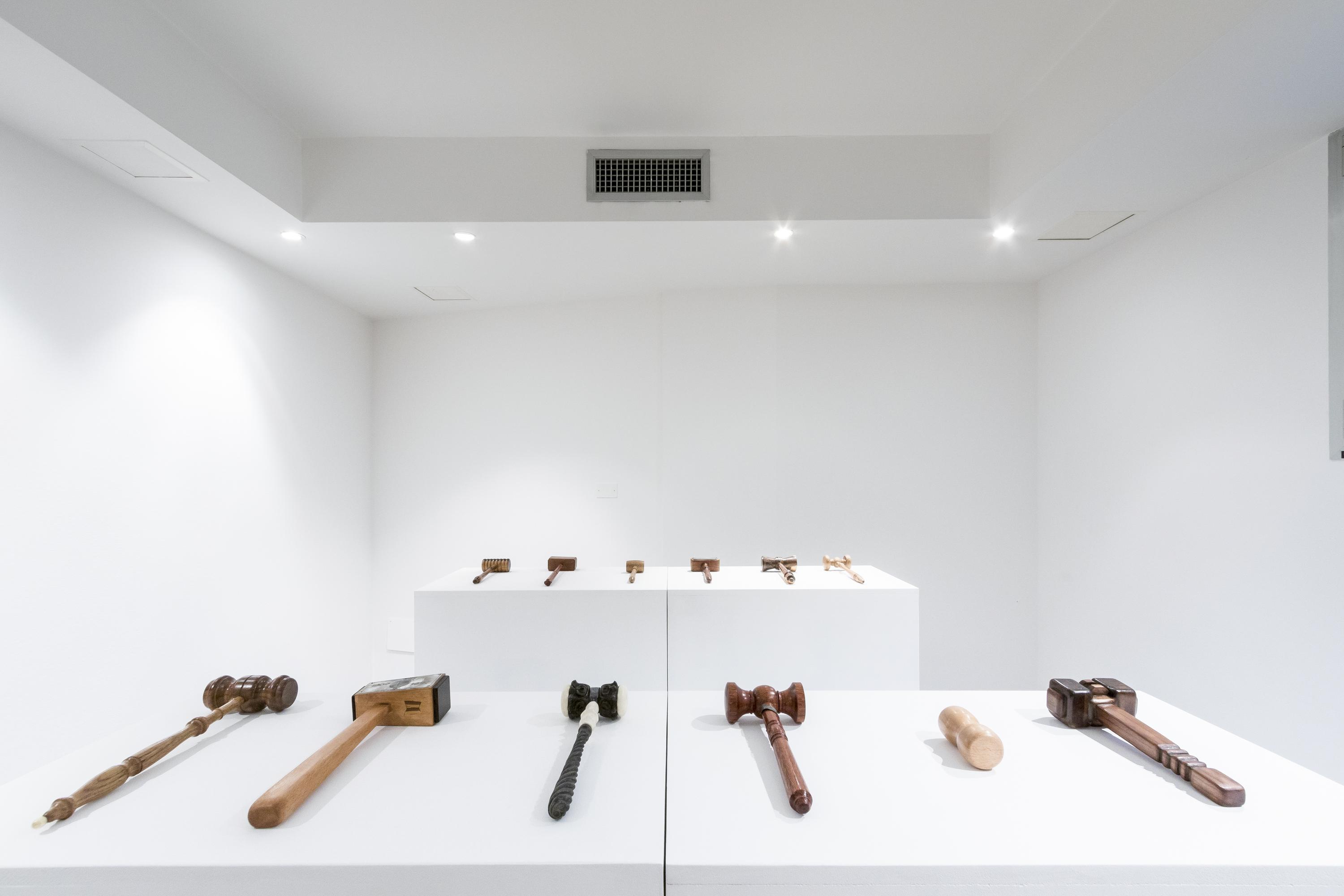
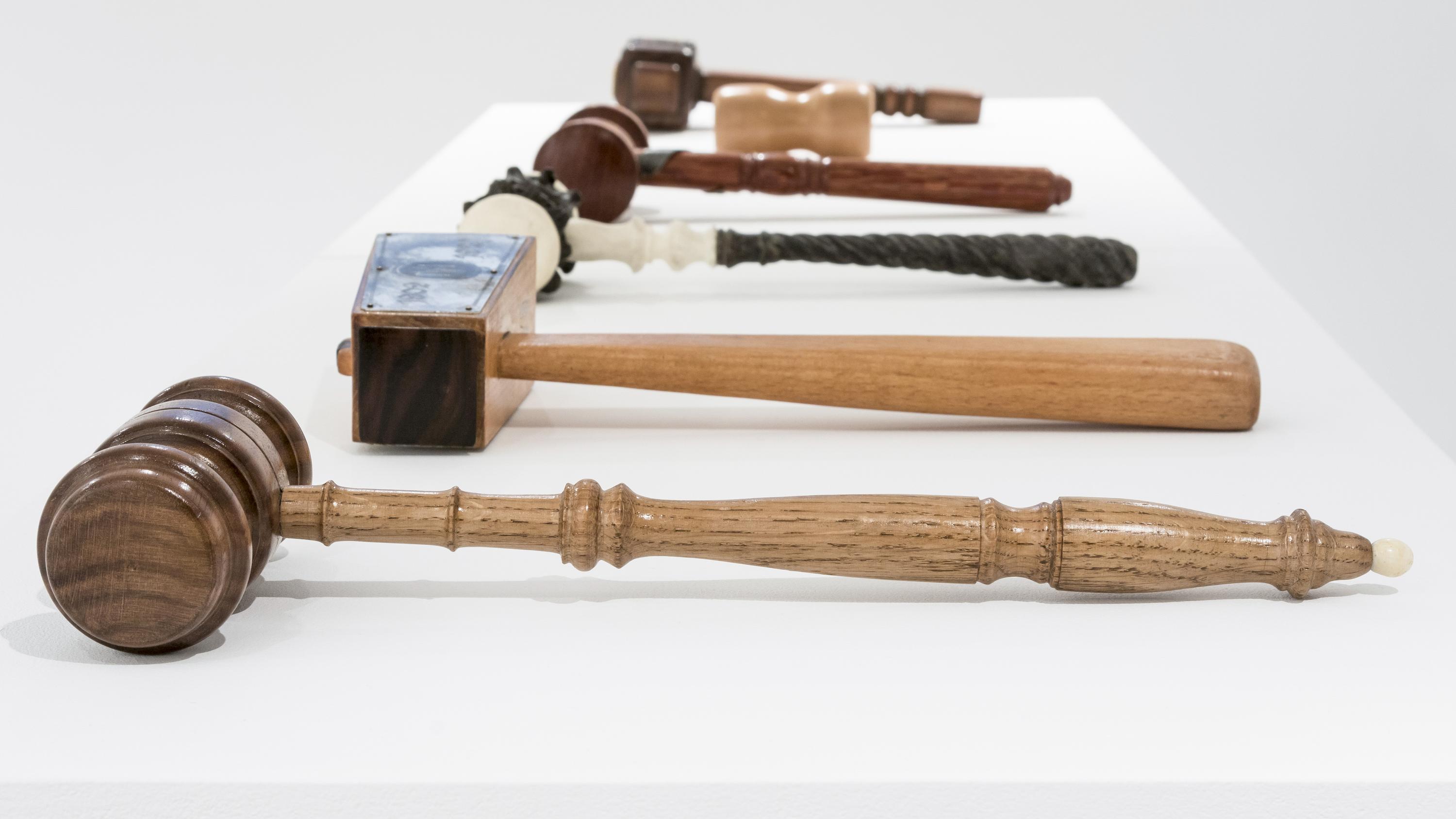
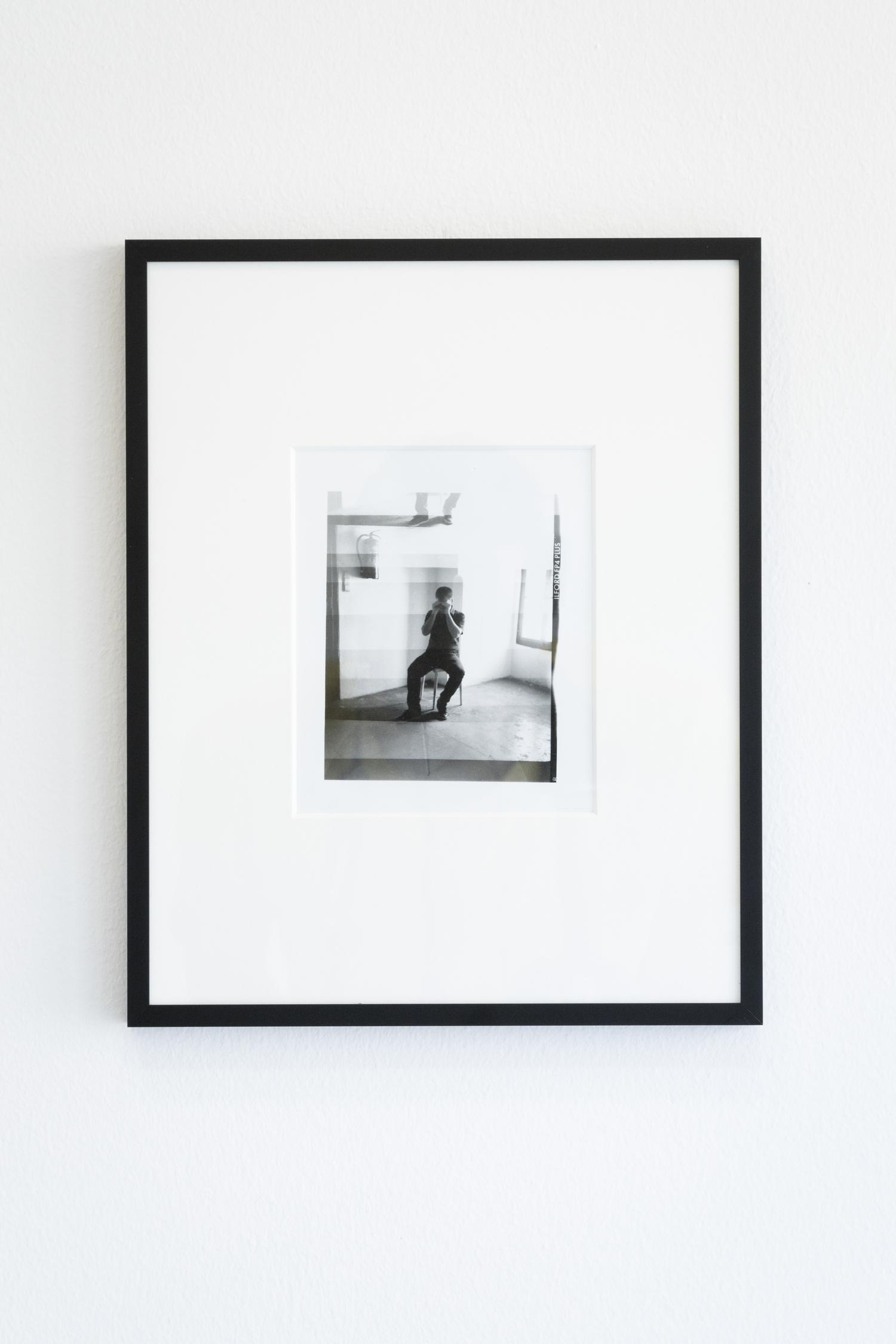
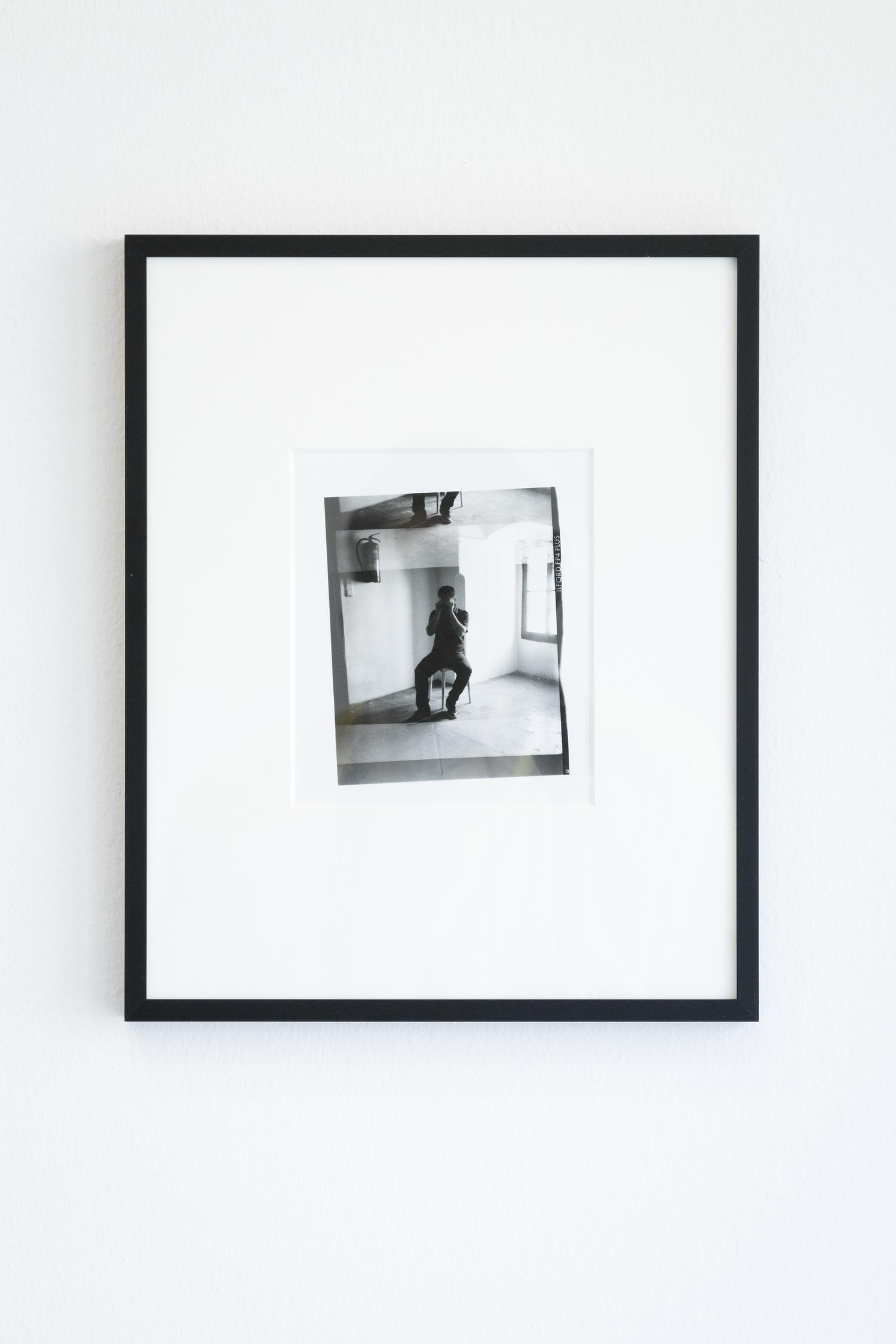
Nel caso di Processing Authorities(2013-2018) distinguere gli originali, dalle copie, dalle prove d’artista è quasi impossibile. Si innesca, in questa matrioska di passaggi successivi, un ambiguo cortocircuito in cui la copia è il prodotto finale di un processo di studio e analisi dell’originale di cui la più vera testimonianza è proprio la prova d’artista. La serie si evolve a partire da un anonimo e singolare gruppo di martelli di legno di proprietà dell'Istituto Internazionale di Storia Sociale (IISH) di Amsterdam. Questi oggetti sono appartenuti a presidenti e capi di commissioni di movimenti rivoluzionari ed emancipatori di tutta Europa (movimenti sindacali, azioni di propaganda, organizzazioni agricole, gruppi religiosi, commissioni contro l’alcolismo, movimenti esperantisti, associazioni sportive, movimenti femministi, per citarne alcuni). Negli anni, molti sono pervenuti in maniera quasi casuale all’Istituto, ma nessuno aveva mai approfondito la loro provenienza e la loro storia. Dopo un lungo periodo di osservazione e studio (sia in archivio sia seguendo le vicende di ogni martello fino a incontrare in alcuni casi i presidenti e i leader dei movimenti che li avevano commissionati o usati per emettere sentenze) e con l’intenzione di mostrarli per la prima volta al pubblico come una collezione, Tonus ha realizzato accurate repliche di 53 martelli, creando non tanto delle copie, ma dei “nuovi originali”, che si costituiscono come una collezione di voci pronte per essere riascoltate, ripensate e ridiscusse sia in quanto opere, sia, soprattutto, in quanto strumenti di esercizio del potere e di rappresentazione visiva dell’autorità. In mostra 10 prove uniche d’artista testimoniano la ricerca dei materiali, lo studio della tecnica di scultura e incisione, la riflessione sul ruolo di questi oggetti silenziosi che portano ancora con sé l’eco di un suono perentorio e definitivo.
In the case of Processing Authorities (2013-2018) discerning the originals from the copies and the artist’s proof is nearly impossible. Within this matryoshka of subsequent steps, an ambiguous short circuit is triggered. In this loop, of which the artist’s proof is the most authentic witness, the copy is the end product, coming from the analysis and study of the original. The series evolves from an anonymous and peculiar group of wooden hammers, property of the International Institute of Social History (IISH) of Amsterdam. These objects belonged topresidents and executives of revolutionary and emancipatory
movements all around Europe (such as unions, propagandistic associations, agricultural organisation, religious group, anti-alcoholism committee, Esperantic groups, feminist movements and sport associations just to cite a few of them). The intention is to present them to the audience for the first time as a collection. Tonus made an accurate replica of fifty-three hammers, creating fifty-three “new originals”. They constitute a collection of voices ready to be listened, thought and discussed again, both as artworks and, especially, as instruments to exercise power as well as visual representation of authority. The ten unique Artist’s Proofs exposed show the materials research, the study on sculpture and engraving techniques, and the reflection on the role of these silent objects carrying with them the echo of a definitive and peremptory sound.
movements all around Europe (such as unions, propagandistic associations, agricultural organisation, religious group, anti-alcoholism committee, Esperantic groups, feminist movements and sport associations just to cite a few of them). The intention is to present them to the audience for the first time as a collection. Tonus made an accurate replica of fifty-three hammers, creating fifty-three “new originals”. They constitute a collection of voices ready to be listened, thought and discussed again, both as artworks and, especially, as instruments to exercise power as well as visual representation of authority. The ten unique Artist’s Proofs exposed show the materials research, the study on sculpture and engraving techniques, and the reflection on the role of these silent objects carrying with them the echo of a definitive and peremptory sound.
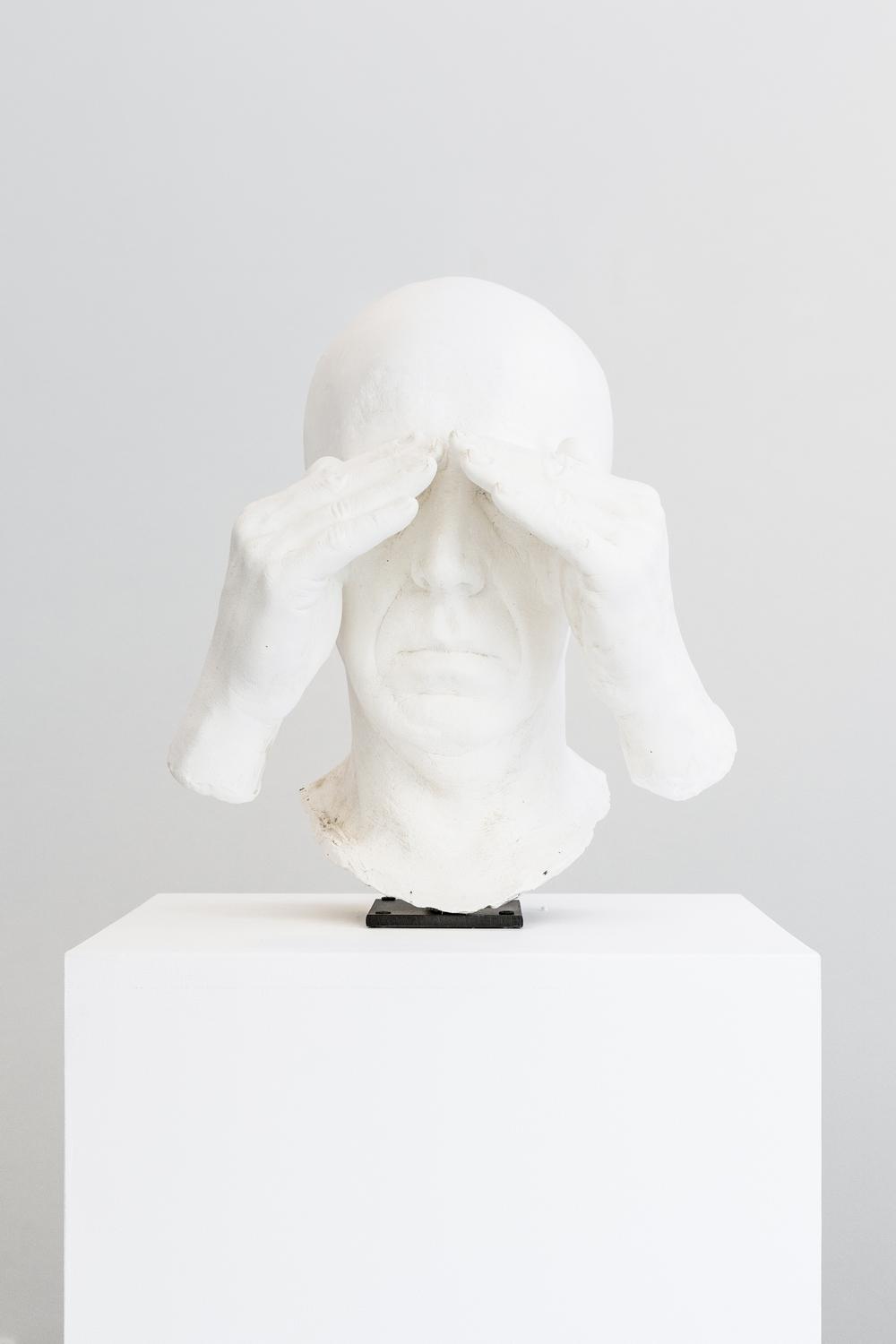
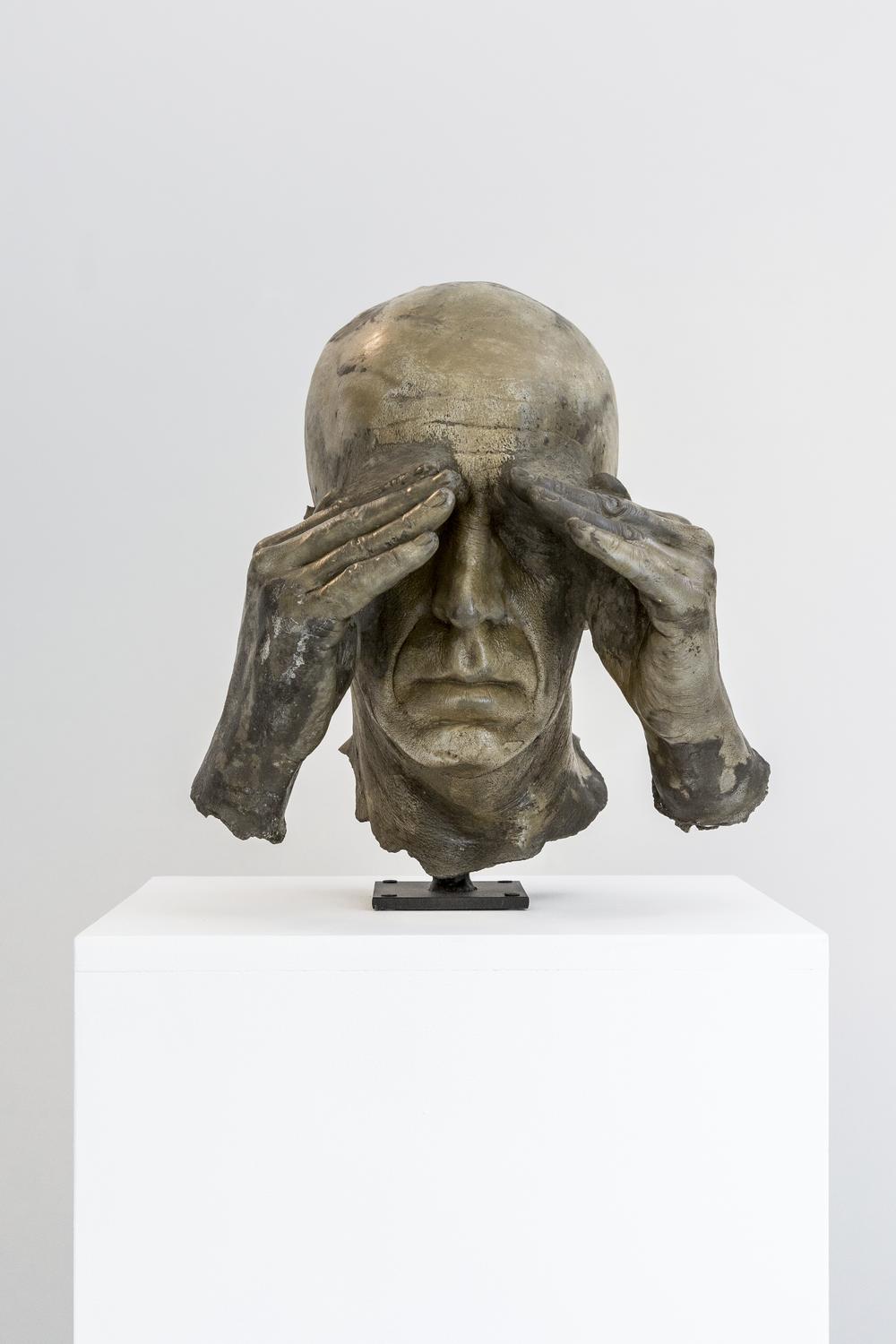
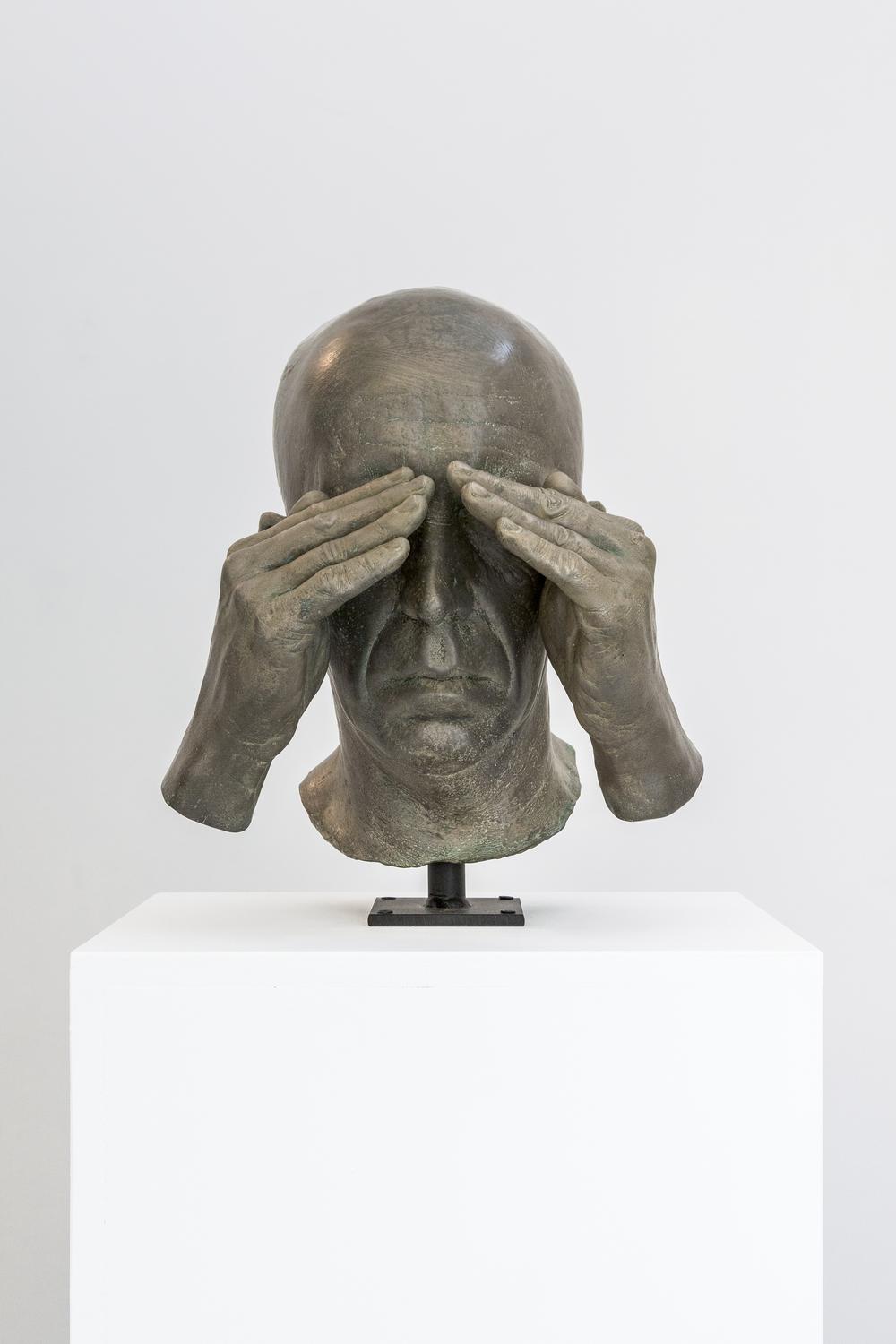
Fragments of a Conversation with a Counterfeiter(2018-2019) è invece il risultato di una conversazione sulla trasformazione e il trasferimento di valore che mette in discussione l’assunzione di valore di tempo e spazio in un momento storico di crisi generalizzata.
La serie deriva da un presunto dialogo tra Diego Tonus e un falsario (anonimo per ovvie ragioni) in cui emergono pensieri controversi relativamente ai sistemi contemporanei che trattano la definizione del concetto di valore. Ogni opera del ciclo è la traduzione visiva da parte dell'artista di questa conversazione: oggetti, azioni e parole del falsario, frammenti della sua pratica di riproduzione e mimesi del valore originale, allusioni alle modalità di trasporto, alle tecniche di elusione dei sistemi di controllo e soprattutto riflessioni sul suo rapporto con il concetto di unicità. Ogni opera è presentata in co-autorialità con il falsario stesso, di cui estrema sintesi è A moment of darkness, calco 1:1 della sua persona. Appropriandosi del pensiero del contraffattore, del suo agire, delle sue impronte digitali, l’artista mette in discussione il concetto di falsificazione e di proprietà intellettuale, arrivando a registrare le opere della serie come segreti commerciali presso l’Ufficio Benelux per la Proprietà Intellettuale così da poter attivare, eseguire e infine condividere con un pubblico internazionale i segreti che custodiscono. La prova d’artista in questo senso acquista un valore ancora maggiore laddove incarna il lento costituirsi di un rapporto di reciproca fiducia tra l’artista e il suo insolito complice.
La serie deriva da un presunto dialogo tra Diego Tonus e un falsario (anonimo per ovvie ragioni) in cui emergono pensieri controversi relativamente ai sistemi contemporanei che trattano la definizione del concetto di valore. Ogni opera del ciclo è la traduzione visiva da parte dell'artista di questa conversazione: oggetti, azioni e parole del falsario, frammenti della sua pratica di riproduzione e mimesi del valore originale, allusioni alle modalità di trasporto, alle tecniche di elusione dei sistemi di controllo e soprattutto riflessioni sul suo rapporto con il concetto di unicità. Ogni opera è presentata in co-autorialità con il falsario stesso, di cui estrema sintesi è A moment of darkness, calco 1:1 della sua persona. Appropriandosi del pensiero del contraffattore, del suo agire, delle sue impronte digitali, l’artista mette in discussione il concetto di falsificazione e di proprietà intellettuale, arrivando a registrare le opere della serie come segreti commerciali presso l’Ufficio Benelux per la Proprietà Intellettuale così da poter attivare, eseguire e infine condividere con un pubblico internazionale i segreti che custodiscono. La prova d’artista in questo senso acquista un valore ancora maggiore laddove incarna il lento costituirsi di un rapporto di reciproca fiducia tra l’artista e il suo insolito complice.
Fragments of a Conversation with a Counter feiter (2018-2019) is instead the result of a dialogue on the value transformation and transfer, questioning the importance of space and time as an assumption in a historical period of generalised crisis. The series derives from an alleged dialogue between Diego Tonus and a counterfeiter (anonymous for obvious reasons) where controversial thoughts are formulated
about the contemporary system debating on the concept of value. Each artwork of the series is the visual transposition of this dialogue: objects, actions and work of the counterfeiter, fragments of his reproduction technique and mimesis of the original value, references to the shipping methods, techniques to evade the security system and, above all, reflections on his own relation with the concept of uniqueness. Each artwork is presented with the counterfeiter as co-author and A moment of darkness , cast 1:1, is the extreme synthesis of the counterfeiter himself. Taking over the counterfeiter mindset, his actions and his fingerprint the artist challenges the concept of forgery and intellectual property. He reaches the point of registering the artworks of the series as commercial secrets at the Benelux Office for Intellectual Properties for then finally activate, execute and share with an international audience the information guarded by the artworks. From this point of view the artist’s proof acquires an even greater value, where it incarnates the slow building of a mutual trust between the artist and his unusual accomplice.